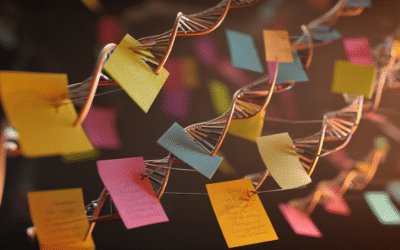Imagine this: You’ve just returned home from a Taylor Swift concert, your ears still buzzing with the echoes of her voice. Yet, when friends ask you to recount the experience, you find yourself grasping at fragments, unable to piece together a coherent narrative. This puzzling phenomenon, termed “post-concert amnesia,” has intrigued fans and psychologists alike.
At first glance, it seems like a curious lapse in memory, but when we delve deeper, we uncover layers of psychological and neurological factors at play.
What is Post-Concert Amnesia?
Post-concert amnesia refers to the phenomenon where individuals struggle to recall specific details of a concert they recently attended. This isn’t just about forgetting minor details; fans report an unsettling inability to recall major parts of the event. It’s akin to experiencing a transient state of global amnesia, where short-term memory becomes a blank slate for a brief period.
Transient Global Amnesia: A Close Cousin?
Transient Global Amnesia (TGA) is a sudden, temporary episode of memory loss that can’t be attributed to a neurological condition such as epilepsy or stroke. During a TGA episode, individuals cannot form new memories and often can’t recall events from the recent past. Typically, TGA is triggered by physical or emotional stress, such as sudden immersion in cold water, vigorous physical activity, or intense emotional experiences.
The Emotional Highs and Neurological Lows
The environment at a Taylor Swift concert is a perfect storm for TGA-like experiences. Here’s why:
1. Overwhelming Emotional Impact: Taylor Swift concerts are more than just musical performances; they are emotional journeys. The anticipation, the communal singing, the sheer presence of an idol, and the crescendo of emotions during the concert create an overwhelming sensory experience. Such intense emotional states can momentarily overload the brain’s memory-forming capabilities.
2. Neurological Overload: During highly charged emotional events, the brain releases a flood of neurotransmitters like dopamine and adrenaline. While these chemicals heighten our senses and emotions, they can also interfere with the brain’s ability to encode and store memories. The result is a kind of temporary ‘short-circuit’ in memory formation.
Memory Triggers and Their Occurrences
Post-concert amnesia isn’t unique to Taylor Swift concerts; it’s a subset of a broader category of amnesic episodes triggered by intense experiences. Similar memory lapses have been reported at other high-stakes events such as weddings, sports championships, and even during childbirth.
Triggers for Transient Amnesic Episodes:
1. Emotional Overwhelm: Events that evoke strong emotions—joy, fear, excitement—are common triggers. The emotional highs cause the brain to focus on the experience’s immediacy, sometimes at the expense of memory formation.
2. Sensory Overload: Concerts involve loud music, flashing lights, and large crowds, creating a sensory-rich environment that can overwhelm the brain’s processing abilities.
3. Physical Factors: Dehydration, fatigue, and the physical strain of standing for long periods can also contribute to the brain’s temporary inability to store memories.
How Common is Post-Concert Amnesia?
While there isn’t extensive scientific data on post-concert amnesia, anecdotal reports suggest it is not uncommon. A significant number of fans have shared their experiences of memory lapses after attending emotionally intense concerts. It’s a reminder of how deeply impactful these events are, leaving an imprint that goes beyond the auditory and visual to affect cognitive functions.
Reversibility and Memory Recovery
The good news is that post-concert amnesia is typically reversible. Unlike severe memory disorders, this type of memory loss is usually temporary. As the brain recovers from the emotional and sensory overload, memories often begin to resurface. Sometimes, revisiting concert footage, photos, or discussing the experience with friends can help jog the memory.
What Does It All Mean?
The occurrence of post-concert amnesia among Taylor Swift fans highlights several intriguing aspects of human cognition and emotion. Firstly, it underscores the profound impact that emotionally charged experiences can have on our brain’s functioning. It also points to the intense emotional investment and connection fans have with their favorite artists, where the experience is so overwhelming that the brain’s typical functions are momentarily disrupted.
In essence, post-concert amnesia is a testament to the power of live music and its ability to create unforgettable moments—so unforgettable, in fact, that our brains struggle to capture them all at once. It’s a fascinating reminder of the interplay between our emotions and memories, and how certain experiences can transcend our usual cognitive processes, leaving us both enriched and momentarily bewildered.
As we continue to explore the intricacies of this phenomenon, it becomes clear that these lapses in memory are not merely forgetfulness but rather an indication of just how deeply impactful and significant these experiences are to us. So the next time you find yourself struggling to recall a night of musical magic, remember—it’s a sign of just how truly unforgettable it was.



